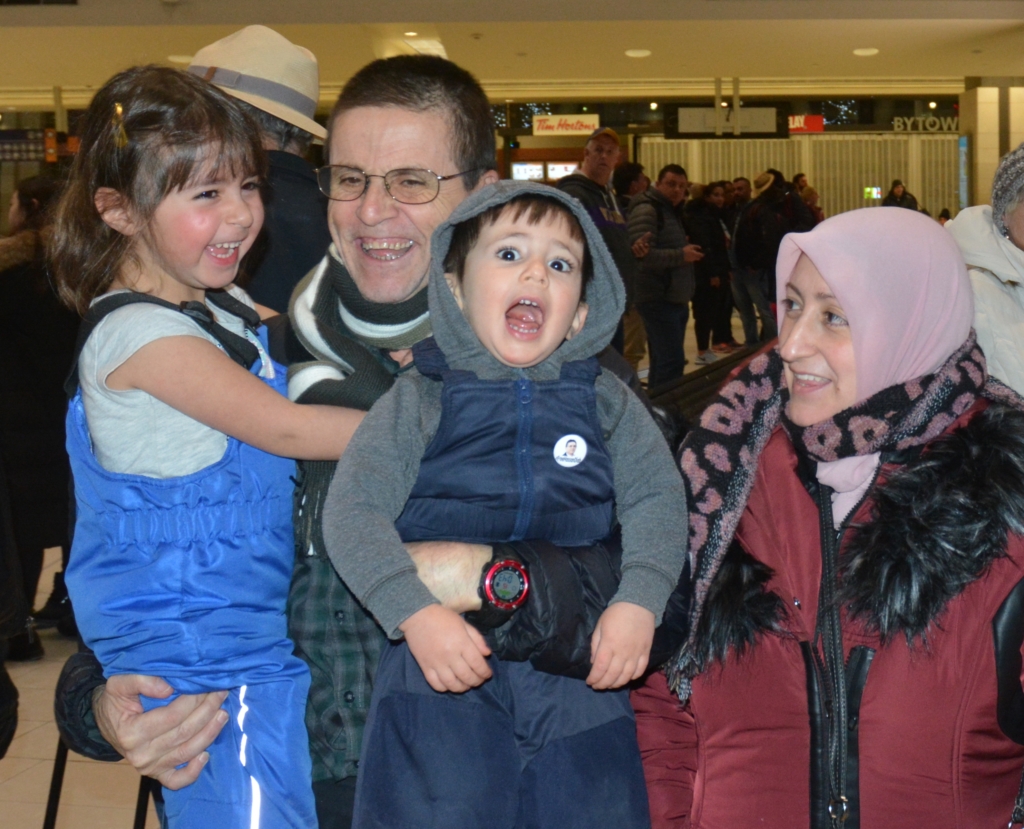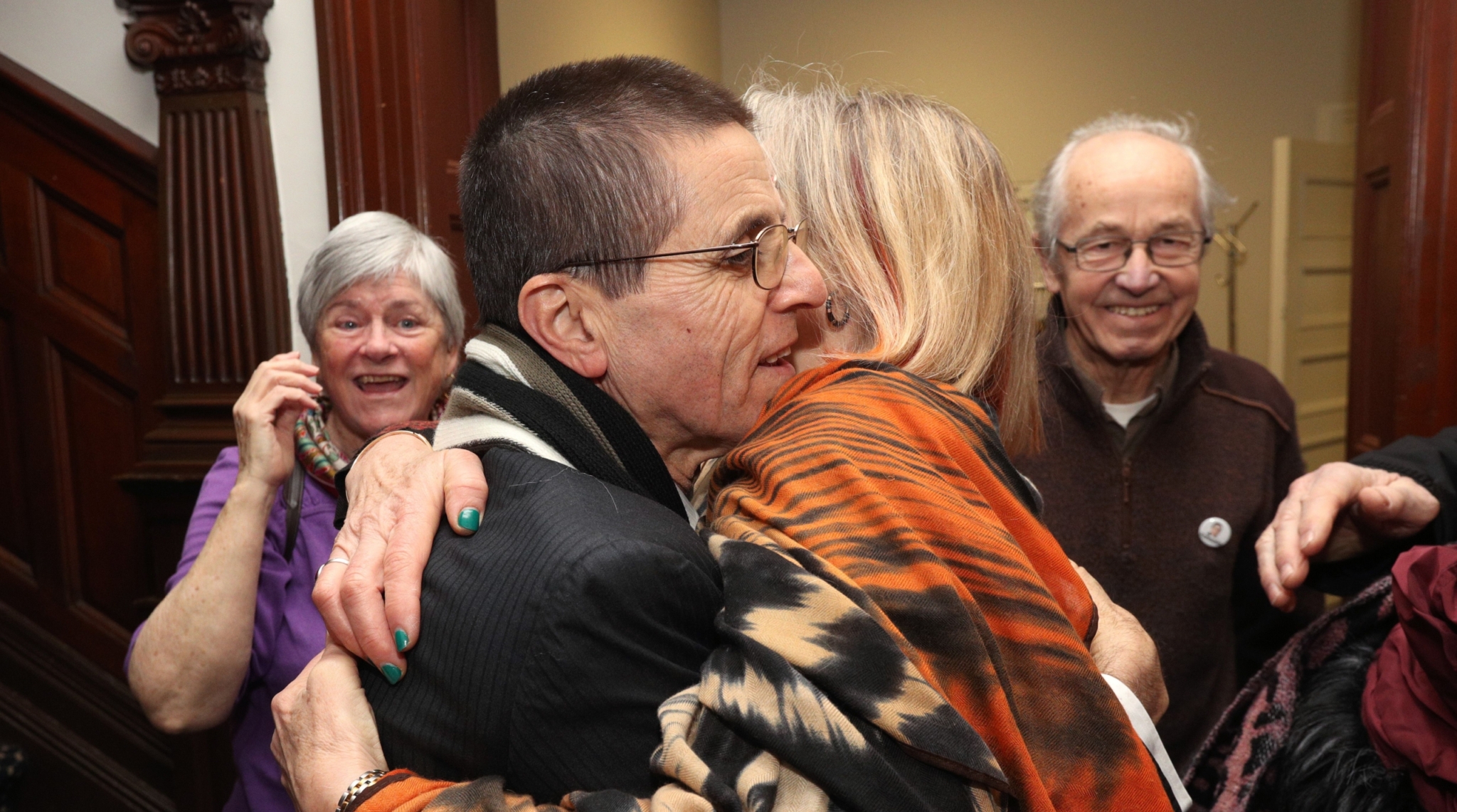Amnesty International is calling on the French Public Prosecutor for Anti-Terrorism to drop the groundless charges against Dr. Hassan Diab, more than 14 years since the effort began to convict him for the bomb attack at the rue Copernic synagogue in Paris on 3 October 1980 which killed four people and injured more than 40 others.
Amnesty International continues to call for the individuals responsible for this horrific antisemitic attack to be brought to justice. Justice does not, however, come by pursuing a man against whom both the Canadian and French justice systems have already found there to be a lack of credible evidence.
In absentia trial set for April 2023
Dr. Diab faces an unfair in absentia trial, currently set to commence on 3 April 2023. This despite the fact that French investigative judges previously dismissed the case against him in January 2018 because of lack of any evidence to support charging him, and a Canadian extradition judge concluded that the evidence against him was weak, unreliable and inconclusive. French judges have also corroborated evidence that Dr. Diab was in Beirut writing university exams at the time of the bombing. Nevertheless, French authorities have continued to pursue the case, despite mounting concerns about unfair trials, arbitrary arrest, and the fact that Dr. Diab was previously held in prolonged isolation which included extended periods amounting to solitary confinement in a maximum-security prison in France for over three years, in contravention of international human rights standards.
The renewed prosecution of Hassan Diab risks substituting the necessary pursuit of truth and accountability for the appalling rue Copernic attack, with another travesty of justice.
In November 2008 the French government sought the extradition of Hassan Diab from Canada, triggering prolonged, flawed proceedings which have lasted for more than 14 years. Amnesty International has followed Dr. Diab’s case closely reviewing judicial decisions, evidence, documents, legal submissions and court rulings associated with the case. This analysis has led Amnesty International to conclude the charges against Hassan Diab should be withdrawn.
From the outset of extradition proceedings in Canada fourteen years ago and continuing throughout legal proceedings in France over the past seven years, Canadian and French judges, as well as experts in handwriting analysis, have consistently found the evidence against him to be weak, unreliable and inconclusive.
Allegations against Hassan Diab ‘very confusing, with conclusions that are suspect’
For instance, Ontario Superior Court Justice Robert Maranger, who presided over the extradition hearing, found that the evidence against Hassan Diab was “convoluted, very confusing, with conclusions that are suspect.” He described the central handwriting report as “highly susceptible to criticism and impeachment.” Ultimately, Justice Maranger observed that “the case presented by the Republic of France against Dr. Diab is a weak case; the prospects of conviction in the context of a fair trial, seem unlikely.” In his final June 2011 ruling he concluded that the exceptionally low threshold of Canadian extradition law nonetheless left him no choice but to commit Dr. Diab for extradition.
Amnesty International is very concerned that after Dr. Diab was extradited to France in November 2014 he did not face a fair and prompt trial, as should have been the case under the terms of Canada’s extradition treaty with France and international human rights provisions with respect to arrest, detention and fair trials.
Instead, he was detained without trial for 38 months and was held in prolonged isolation for almost that entire time, included extended period in conditions amounting to solitary confinement. It is well recognized, including in Rule 43 and 44 of the United Nations Standard Minimum Rules for the Treatment of Prisoners (the Nelson Mandela Rules), the UN Human Rights Committee’s General Comment 20 and numerous reports from the UN Special Rapporteur on Torture, that solitary confinement beyond fifteen days constitutes cruel treatment and can in some instances amount to torture. Dr. Diab was held in solitary confinement far in excess of those limits.
Over time, French investigative judges have found significant exculpatory evidence corroborating Dr. Diab’s assertion that he was in Lebanon at the time of the bomb attack. This ultimately led to the January 12, 2018 decision by investigative judges Jean-Marc Herbaut and Richard Foltzer that there was insufficient evidence to justify a trial and to release Dr. Diab from detention in France. Dr. Diab subsequently returned to Canada. Upon dismissing the charges and ordering Dr. Diab’s immediate release, the French investigative judges stated there was consistent evidence that Diab was writing exams in Lebanon at the time of the 1980 bombing.

While appeal court rulings in the two countries have upheld his extradition (2014) and ordered that his trial go ahead (2021), the evidentiary record on which the judicial conclusions and determinations noted above were based is still as described by Justice Maranger. In fact, more recently, a new expert analysis ordered by the French appeal court concluded that the initial handwriting opinion that had been the ultimate basis for Dr. Diab’s extradition from Canada was wholly unreliable because of the use of a “scientifically inadequate methodology for assessing similarities and differences”. This new report stated that “we are in total agreement with the defence experts.”
Suffered five years of severe bail conditions in Canada, imprisonment in France
Dr. Diab endured over five years of severe bail conditions in Canada before he was extradited, more than three years of imprisonment in a foreign country away from his family, lengthy solitary confinement (far in excess of the maximum length determined by international standards to constitute torture or other ill-treatment), and deterioration in both his physical and mental health. He also missed more than three years of his young children’s lives, including the birth of his son.
To proceed with the case, after such prolonged and deeply flawed proceedings over so many years, and in the absence of reliable evidence to support the charges, would be in breach of France’s binding international human rights obligations, most notably with respect to arbitrary arrest and detention, and fair trials, enshrined in the International Covenant on Civil and Political Rights (ICCPR), the European Convention on Human Rights (ECHR), and other instruments. To proceed is of even greater concern given that Dr. Diab’s rights have been flagrantly violated throughout these proceedings to date, including the prolonged solitary confinement noted above, in breach of France’s obligations under the Convention against Torture and other Cruel, Inhuman or Degrading Treatment or Punishment, the ICCPR, and the ECHR.
It also constitutes a failure to bring to justice those responsible for the tragic loss of life on 3rd October 1980, and so to deliver justice for the victims of this crime.
Amnesty International calls on the French Prosecutor for Anti-Terrorism to drop charges against Hassan Diab and put an end to this protracted injustice.






















